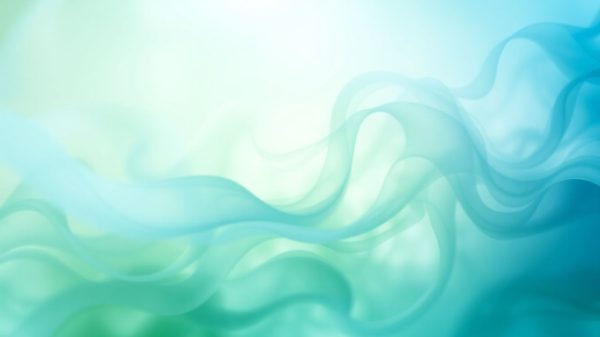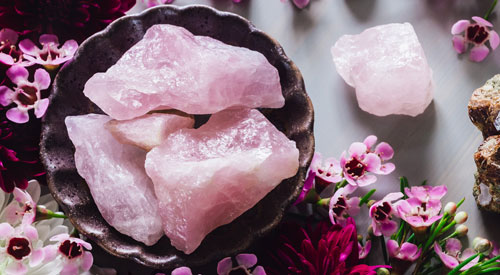In Traditional Chinese Medicine (TCM), the kidneys do far more than filter blood. They serve as the foundation of life force, storing our deepest essence and shaping everything from motivation to stamina. When kidney energy weakens, mood, physical vitality, and stress tolerance often decline. Therefore, learning how TCM views Kidney Essence and how herbs such as jet, Dendrobium, and Schisandra support this system can help restore balance and resilience.
Key Takeaways
-
TCM considers the kidneys a core source of life essence that influences energy, mood, and willpower.
-
Kidney Essence, or jing, fuels physical strength and emotional steadiness.
-
Yin or Yang imbalances may lead to fatigue, anxiety, fear, or low motivation.
-
Nourishing herbs like Dendrobium and Schisandra help replenish kidney reserves and calm the spirit.
-
Jet and formulas containing Gastrodia Tuber address internal “dampness” and “wind,” often seen in tinnitus or Meniere’s-type patterns.
Understanding Kidney Essence in TCM
In TCM, Kidney Essence forms the deepest energetic foundation of the body. Unlike the Western view that focuses on filtration, this system reflects inherited vitality, reproductive strength, and emotional steadiness. Moreover, TCM teaches that this essence sets our overall constitution at birth and supports healthy aging throughout life. When it declines, both mental clarity and physical strength can fade, which shows why nourishing Kidney Essence matters for long-term wellness.
The Role of Kidney Essence in Mood and Energy
Kidney Essence, or jing, fuels growth, stamina, and emotional confidence. When it stays full, we often feel clear-minded, motivated, and capable of handling stress. When it becomes depleted, however, fatigue, low mood, and self-doubt frequently arise. Additionally, a weakened essence may disturb the Shen (spirit), leading to fear or insecurity. Because of this deep connection, many emotional and energetic concerns trace back to kidney health in TCM. It’s fascinating how TCM connects these seemingly disparate aspects of our well-being, showing how our Kidney Qi or Essence Deficiency can be a common root of many ailments.
Kidney Yin and Blood Tonics for Replenishment
When Essence declines, strengthening Kidney Yin and Blood becomes essential. Yin nourishes and cools the system, while Blood moistens, grounds, and stabilizes energy. Together, they replenish depleted reserves and help rebuild strength. Practitioners often recommend rich, deeply nourishing herbs during times of stress, recovery, and aging to restore vitality, calm the mind, and support stable momentum in daily life.
Dendrobium Nobile: Nourishing Yin and Clearing Heat
Dendrobium Nobile, a prized orchid in TCM, gently replenishes Kidney Yin while clearing internal heat. People often use it for sensations of dryness, night sweats, irritability, or fatigue caused by Yin depletion. By cooling while nourishing, Dendrobium helps steady emotions, restore moisture, and encourage a calm, grounded state. As a result, it supports both physical balance and emotional ease.
Herbal Support for Calming the Shen

When the mind feels restless and thoughts keep spinning, TCM looks to calm and anchor the Shen. Emotional agitation, difficulty sleeping, and persistent worry frequently reflect this disturbance. Fortunately, specific herbs ease mental fatigue and soothe nervous tension, helping the mind settle and encouraging restorative rest.
Schisandra Chinensis: The Five-Flavor Herb
Schisandra chinensis (Wu Wei Zi) holds all five TCM flavors, which hints at its wide therapeutic range. It strengthens the nervous system, enhances focus, and steadies emotions. Practitioners often use it for forgetfulness, scattered thoughts, and emotional sensitivity. In addition, its harmonizing nature offers gentle yet effective support for mental balance.
Calming the Spirit and Treating Insomnia
Schisandra helps quiet internal chatter and promotes natural sleep without heavy sedation. Many people notice smoother emotional regulation, less irritability, and steadier daytime focus. By calming the spirit, it supports deep rest at night and grounded clarity during the day.
Adaptogenic Properties of Schisandra
As an adaptogen, Schisandra enhances the body’s stress response, protecting energy reserves and improving resilience. While gentle, it helps prevent depletion and supports emotional stability. This quality makes it valuable during demanding seasons of life when the body needs extra support to restore calm and vitality. You can find out more about how TCM approaches mental well-being at TCM and mental well-being.
Here’s a quick look at some common uses:
- Helps quiet a racing mind.
- Supports restful sleep.
- Assists the body in adapting to stress.
- Can improve focus and concentration.
TCM often looks at the interconnectedness of things. When the Shen is unsettled, it can affect other parts of the body, and vice versa. Using herbs like Schizandra is a way to address these connections holistically, aiming for a deeper sense of calm and resilience.
The TCM Kidney’s Influence on Mind and Will
Kidneys as the Seat of Willpower
TCM describes the Kidneys as holding Essence and governing willpower. When Essence stays strong, people typically feel focused, determined, and clear about their purpose. This internal strength fuels consistent follow-through and grounded confidence. The classical idea that “Essence holds the will” underscores this critical connection between physical reserves and emotional fortitude.
Fear, Paranoia, and Deficient Kidney Qi
When Kidney Qi weakens, fear and insecurity may surface. Although occasional fear is normal, persistent worry or shaky confidence often indicates a deeper energetic depletion. Strengthening Kidney Qi helps rebuild emotional steadiness and the ability to face challenges with grounded courage.
The Kidney’s Role in Adrenals and Endocrine Function
Interestingly, TCM’s Kidney system aligns with the adrenal and endocrine systems in Western physiology. Because the adrenals sit above the kidneys and influence stress hormones, the TCM view naturally reflects this connection. Supporting Kidney energy therefore contributes to steadier stress responses, improved vitality, and balanced hormone activity.
Continue Your Crystal Journey
Visit our healing crystals index page to explore a growing library of stones and download a companion guide. New stones and updates are added regularly, so it’s a helpful page to bookmark and return to whenever you want to learn more.
Addressing Dampness and Wind with Jet in TCM
Sometimes, things just feel… off. You might experience that annoying ringing in your ears, known as tinnitus, or maybe a dizzying sensation coupled with hearing loss and ear pressure, which TCM identifies as Meniere’s syndrome. These aren’t just random annoyances; in Traditional Chinese Medicine, they’re often linked to imbalances like excess dampness and wind.
Tinnitus and Meniere’s Syndrome in TCM
Ban Xia Bai Zhu Tian Ma Tang is commonly used to dry dampness, calm spasms, and support digestion. Each ingredient plays a targeted role, helping move fluids, reduce dizziness, and soothe internal wind. This formula reflects TCM’s holistic approach: clear excess, support digestion, and calm the nervous system.
Herbal Formulas for Dampness and Wind
When dampness and wind are the culprits, TCM turns to herbs that help dry out excess fluid, calm spasms, and move things along. Think of it like clearing out a stuffy room. A classic formula for this is Ban Xia Bai Zhu Tian Ma Tang, which translates to Pinellia, White Atractylodes, and Gastrodia Decoction. It’s designed to tackle dampness in the digestive tract and calm the nervous system.
Here’s a peek at what goes into it:
- Pinellia tuber (Ban Xia): Helps resolve dampness.
- Gastrodia tuber (Tian Ma): A powerful antispasmodic, great for calming tremors and dizziness.
- White Atractylodes (Bai Zhu): Aids digestion and eliminates fluid stagnation.
- Poria cocos (Fu Ling): A diuretic that helps clear dampness.
- Citrus reticulata peel (Chen Pi): Dries dampness and helps move Qi.
- Licorice root (Gan Cao): Harmonizes the formula and supports digestion.
- Fresh ginger (Sheng Jiang): Circulates and warms.
- Jujube dates (Da Zao): Adds a tonic quality and harmonizes the mix.
Gastrodia Tuber: A Powerful Antispasmodic
Gastrodia (Tian Ma) calms internal wind and reduces dizziness, tremors, and tension. Because it eases nervous system spasms and supports balance, it appears frequently in formulas for vertigo and neurological discomfort. In addition, it helps promote clear, settled energy in the head and ears.
In TCM, treating tinnitus or Meniere’s means looking beyond the ears and checking how the Kidneys and Spleen are functioning. Dampness and wind often signal poor fluid processing, leading to buildup that affects the head and ears. Herbal formulas then work to clear these imbalances and support the body’s natural ability to regain balance.
Balancing Yin and Yang for Holistic Health

In Traditional Chinese Medicine (TCM), the concepts of Yin and Yang are central to understanding health and disease. Think of them as two opposing but complementary forces that keep everything in balance. When these forces are in harmony, we feel well. When they get out of whack, that’s when problems can start to show up.
The Concepts of Yin and Yang in TCM
Yin and Yang represent complementary forces that must stay balanced for good health. Yin cools, nourishes, and stabilizes, while Yang warms, activates, and motivates. When they support each other, energy flows smoothly and the body functions harmoniously.
- Yin qualities: Cool, dark, passive, moist, substantial, slow.
- Yang qualities: Warm, light, active, dry, energetic, fast.
The interplay between Yin and Yang is constant and dynamic. They depend on each other and transform into one another. For instance, the activity of Yang during the day gives way to the restfulness of Yin at night.
Signs of Yin and Yang Deficiency
Yang deficiency often causes coldness, low motivation, and fluid retention. Yin deficiency, however, tends to lead to heat sensations, restlessness, and dryness. Recognizing these signs early allows for timely herbal and lifestyle support, helping the body return to equilibrium.
Kidney Yin and Yang in Electrolyte Balance
The TCM Kidney plays a really big role in keeping Yin and Yang balanced throughout the body. It’s not just about the physical organ we know in Western medicine; it’s a whole system that influences our fundamental life force.
The Kidney system plays a central role in fluid and mineral balance, influencing nerve and muscle function. Because of this, balanced Yin and Yang support proper electrolyte regulation and stable energy metabolism. Maintaining this harmony enhances physical vitality and emotional steadiness. This connection highlights how TCM offers a more holistic view of bodily functions, linking seemingly separate systems for overall health and well-being.
The balance of Yin and Yang is like a finely tuned instrument. When it’s in tune, everything functions smoothly. When it’s off-key, the body sends out signals that something needs attention. Recognizing these signs is the first step toward restoring harmony.
Kidney Yang Deficiency and Its Manifestations
When we talk about Kidney Yang deficiency in Traditional Chinese Medicine (TCM), we’re looking at a state where the body’s internal “fire” or warming energy is low. This isn’t just about feeling a bit chilly; it’s a deeper hypometabolic state that affects many bodily functions. Think of Kidney Yang as the engine that keeps everything running warm and efficiently. When it’s weak, things slow down, and you start to feel the cold, both inside and out.
Symptoms of Kidney Yang Deficiency
Kidney Yang deficiency may appear as persistent chilliness, fatigue, low libido, water retention, and weakened drive. People often feel physically cold and mentally low-powered. Recognizing these symptoms early encourages supportive care before deeper depletion develops.
Here’s a quick rundown of common signs:
- Persistent coldness, especially in the lower body
- Low sex drive or sexual dysfunction
- Frequent, clear urination, including at night
- General fatigue and lack of energy
- Edema (swelling), particularly in the legs and ankles
- Pale, moist tongue with a thin white coating
- Weak, slow pulse
Herbs and Formulas for Warming Yang
Warm, Yang-tonifying herbs rekindle internal heat and strengthen metabolic processes. Cinnamon, ginger, and related botanicals enhance circulation and restore warmth, helping the body regain vitality and motivation.
True Warrior Decoction for Vitality
Zhen Wu Tang, or True Warrior Decoction, warms Kidney and Spleen Yang and supports fluid metabolism. It is often chosen for fatigue, swelling, and cold digestive patterns. By strengthening core warmth, it helps renew stamina and resilience.
The concept of Kidney Yang deficiency in TCM is closely linked to the body’s ability to generate and maintain warmth and metabolic activity. When this Yang energy is depleted, the body struggles to keep itself warm, process fluids efficiently, and maintain robust sexual and reproductive functions. It’s like the pilot light of the body flickering out, leading to a cascade of symptoms that indicate a fundamental lack of internal heat and drive.
The Kidney’s Role in Energy Metabolism
Kidney Qi Deficiency and Glucose Utilization
TCM links Kidney Qi to the body’s ability to transform food into usable energy. When this system weakens, blood sugar may fluctuate, and fatigue becomes more common. Supporting Kidney Qi encourages steadier energy and metabolic balance.
Diabetes as a Disease of Yin Deficiency
TCM often views diabetic patterns as Yin deficiency conditions that lead to internal heat and dryness. Nourishing Yin therefore helps hydrate tissues, regulate fluids, and support steadier metabolic function.
Rehmannia Six Formula for Wasting Diseases
Liu Wei Di Huang Wan, or Rehmannia Six, nourishes Kidney Yin and replenishes fluids. Many practitioners use it when depletion leads to thirst, dryness, and fatigue. It may also support healthy growth in children when appropriate guidance is present.
The Kidneys in TCM are more than just the organs that filter waste. They are considered the foundation of our life force, influencing everything from our physical structure to our mental resilience. When Kidney energy is low, it impacts our ability to generate and utilize energy, affecting everything from blood sugar to our overall vitality.
Here’s a look at how Kidney Qi deficiency can show up:
- Fatigue: Feeling drained even after rest.
- Blood Sugar Fluctuations: Experiencing highs and lows in glucose levels.
- Poor Growth (in children): Developmental delays or issues.
- Thirst and Dryness: Often a sign of Yin deficiency.
This shows how interconnected everything is. When the Kidneys aren’t functioning at their best, it ripples through the entire body’s energy system.
Wrapping It Up
TCM views the kidneys as the foundation of physical vitality and emotional steadiness. By nourishing Yin, strengthening Yang, and calming the Shen, the body gradually rebuilds energy and resilience. Rather than focusing on quick fixes, TCM encourages long-term balance, gentle herbal support, and grounded lifestyle practices that help you feel steady, nourished, and centered.
Frequently Asked Questions
What is Kidney Essence in Traditional Chinese Medicine (TCM)?
Kidney Essence is your inherited energetic foundation. It supports growth, vitality, and emotional stability throughout life.
How does the Kidney’s role in TCM connect to emotions like fear?
Weak Kidney Qi may lead to fear, insecurity, and low confidence. Strengthening this system builds inner steadiness.
Can TCM help with issues like tinnitus or Meniere’s disease?
Yes. When caused by dampness and wind patterns, formulas with herbs like Gastrodia help clear fluid buildup and calm the nervous system.
What are Yin and Yang in TCM, and why are they important for health?
They represent cooling and warming forces that shape health. Balanced Yin and Yang support stable energy, rest, and emotional well-being.
How does Kidney Yang deficiency show up in the body?
Common signs include coldness, fatigue, swelling, and low motivation. Warming herbs help restore vitality.
What is the connection between Kidney health and energy metabolism in TCM?
Kidney Qi supports healthy energy conversion and fluid balance. Weakness here may contribute to blood sugar challenges.
Sources & TCM Foundations
The insights in this article draw from Traditional Chinese Medicine mineral teachings, classical stone lore, and modern interpretations of crystal healing. Key references include:
-
Stone Medicine: A Chinese Medical Guide to Healing with Gems and Minerals — Leslie J. Franks
-
Discovering Chinese Mineral Drugs — Weidong Yu & Harold D. Foster
-
Healing Stones for the Vital Organs: 83 Crystals with Traditional Chinese Medicine — Michael Gienger & Wolfgang Maier
-
The Story of Stone: Intertextuality, Ancient Chinese Stone Lore, and the Stone Symbolism in Dream of the Red Chamber, Water Margin, and Journey to the West — Jing Wang
These teachings are also informed by my years of qigong and TCM study, along with my lived experience in Shanghai, where I learned directly from practitioners and cultural traditions that integrate stone wisdom into everyday healing.





